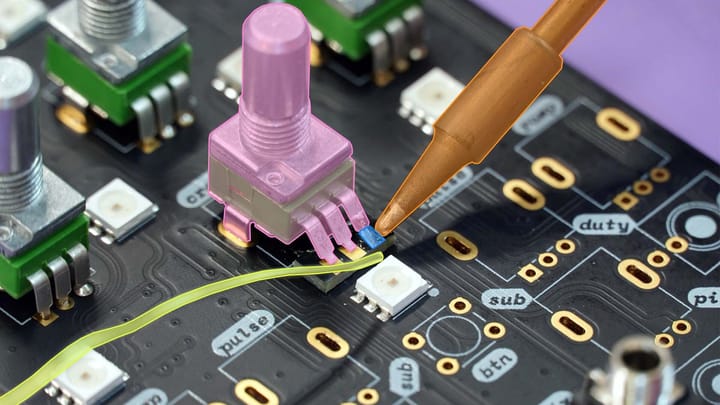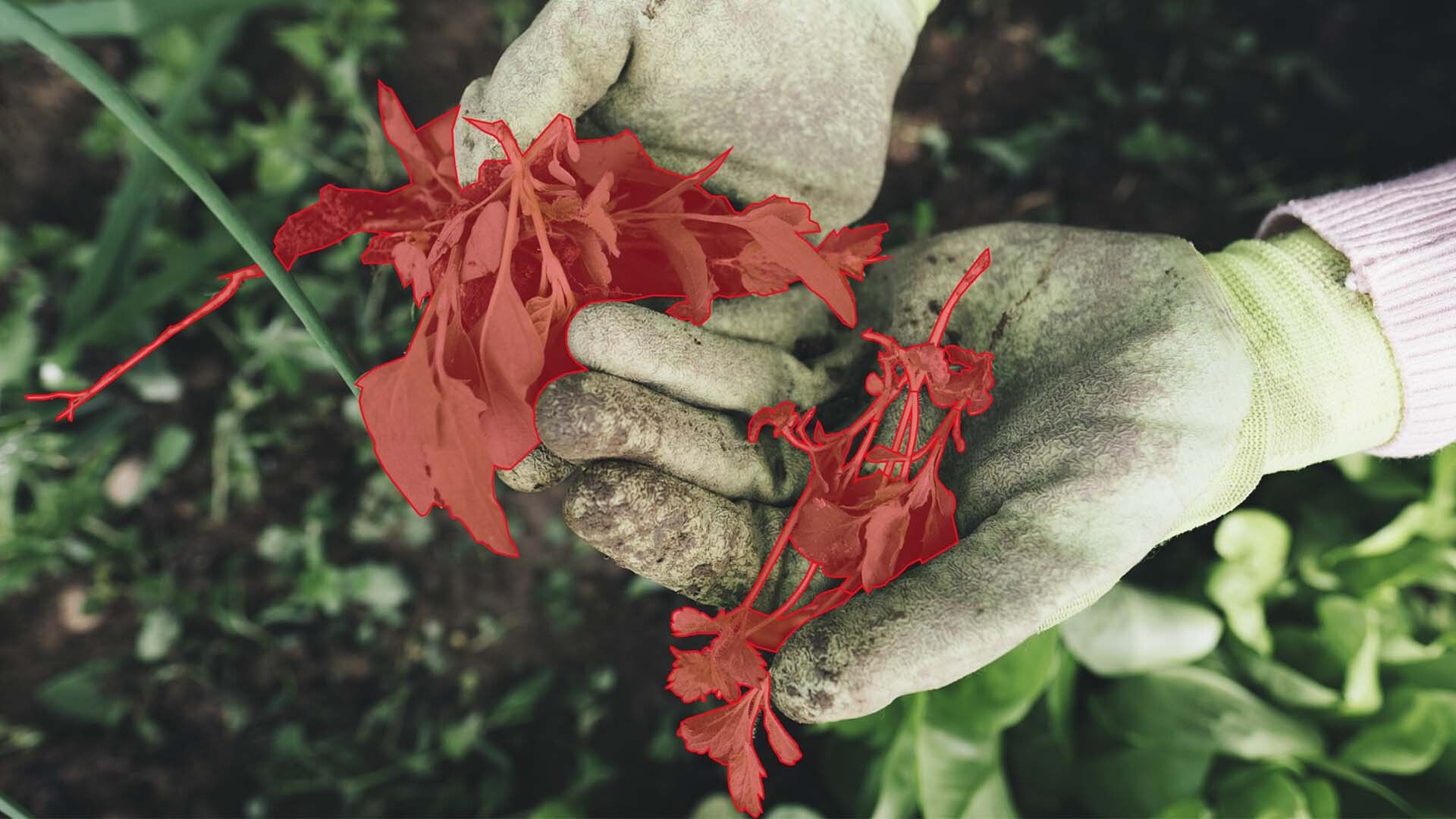Overcoming Obstacles for Agriculture AI with Data Annotation
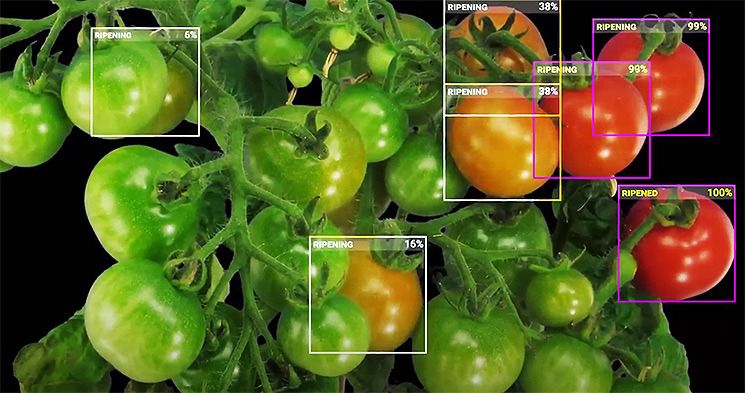
The coming century will see unprecedented challenges for agriculture and food production. By 2050 agricultural land will be required to feed an additional two billion people. This enormous increase in demand will coincide with pressures on supply caused by a changing climate and the increasing soil degradation.
Securing the global food supply is a challenge that is being met, in part, by innovation in the field of computer vision based AI. Companies are currently iterating technologies that will increase yields, reduce disease, and limit productive soil loss.
At the core of these machine learning systems is precision annotation. Accurately labeled images and video of crops and fields power the development of well-functioning models.
This blog will address three key challenges that are facing the development of AI for agriculture and show how high quality data annotation can make a difference in meeting these challenges.
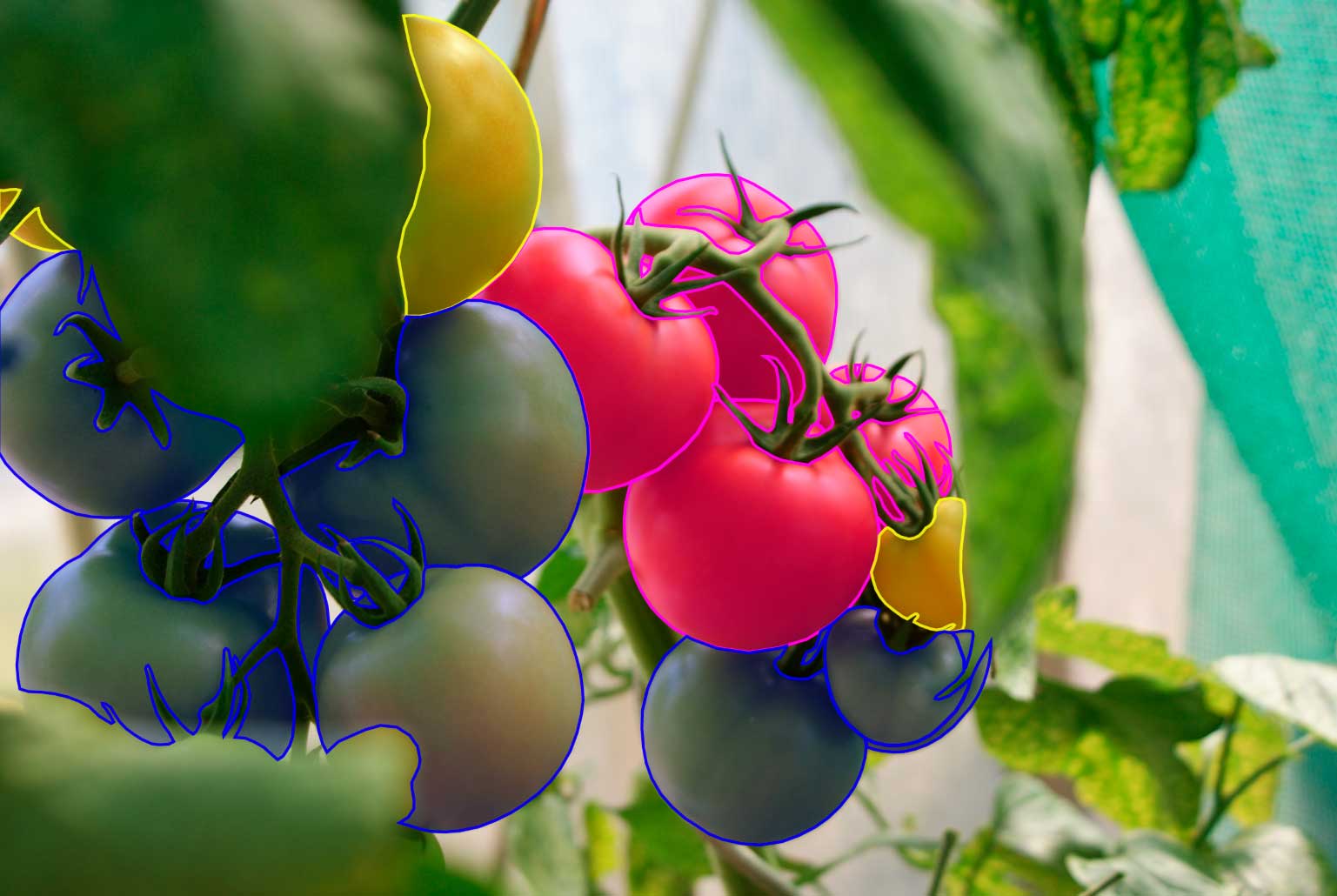
Disease, Parasites and Weeds
The mission to increase yields and overall productivity necessitates identifying threats to crops from disease, parasites, and weeds. AI systems have the capacity to recognise disease and parasites on individual leaves. These models are able to detect abnormalities and warn farmers in real-time.
The same technology allows AI powered cameras to detect the presence of weeds, integrated processes can then recommend the types of herbicides that can best be deployed to reduce their prevalence. By discerning between healthy leaves and disease, and between crops and weeds, AI models are allowing growers to intervene and remove harms to their products before they can proliferate.
Pixel-perfect annotation is key to ensuring the accuracy of harm reducing agricultural AI. Professional annotation services, like Keymakr, can provide high quality labeling at scale. Bounding box techniques are most commonly employed on images of disease on individual pieces on vegetation. This data is then fed into machine learning models allowing them to identify threats in the real world.
Monitoring Crops and Soil
Precision farming is reliant on continuous flows of information about the status of crop health, growth rates, and soil conditions. Computer vision based AI systems are now capable of keeping track of these metrics. Cameras empowered with this technology are able to monitor rates of plant growth, and inform farmers when there are issues with crop development.
Nutrient deficiencies can also be detected early, as can issues with water availability and toxicity from pesticides. Image recognition software is also being deployed to gauge the quality of soil by identifying pests and diseases in soil samples.
Instance segmentation is a useful tool for creating datasets for monitoring crop growth. Images of plants in different stages of growth can be labeled using this method. This training data allows AI models to gain a nuanced understanding of plant development.
Videl annotation for agriculture | Keymakr
Harvesting and Weeding
The final stage of the agricultural process is increasingly benefiting from computer vision capable robotics. Robotic arms are being trained to identify ripe fruits and then pick them without damaging the produce.
This technology has the capacity to improve the rate at which crops can be harvested, increasing profit margins in the process. AI backed robotics are also being developed to combat weeds. These systems must be able to distinguish between healthy plants and invasive weeds, and then efficiently remove the weeds.
Training agricultural robotics relies on huge quantities of labeled image and video data. Polygon annotation can precisely delineate the outline of target produce. Precision in training imagery results in more effective final models.
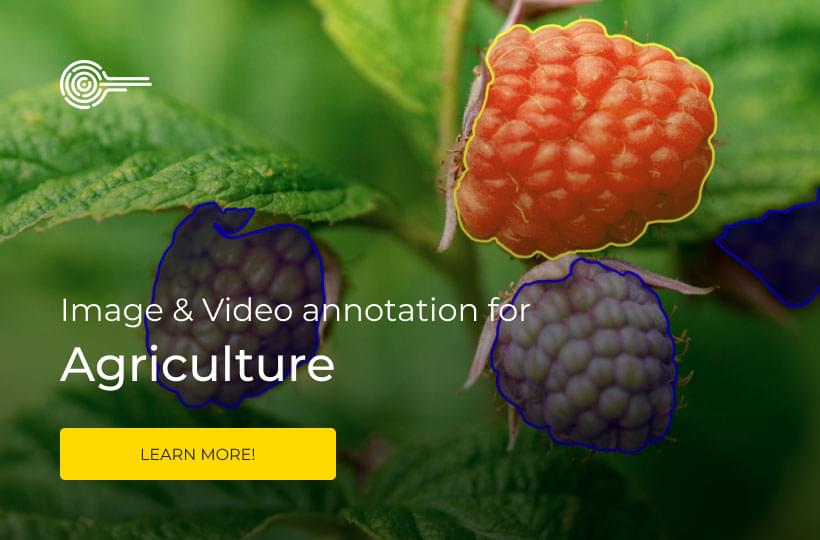
Image and Video Annotation for Agriculture AI
Keymakr provides high quality annotation for agriculture focused AI projects. Teams of experienced annotators, supported by rigorous management processes, are able to produce bespoke datasets to meet any need. Contact a team member to book your personalized demo today.


